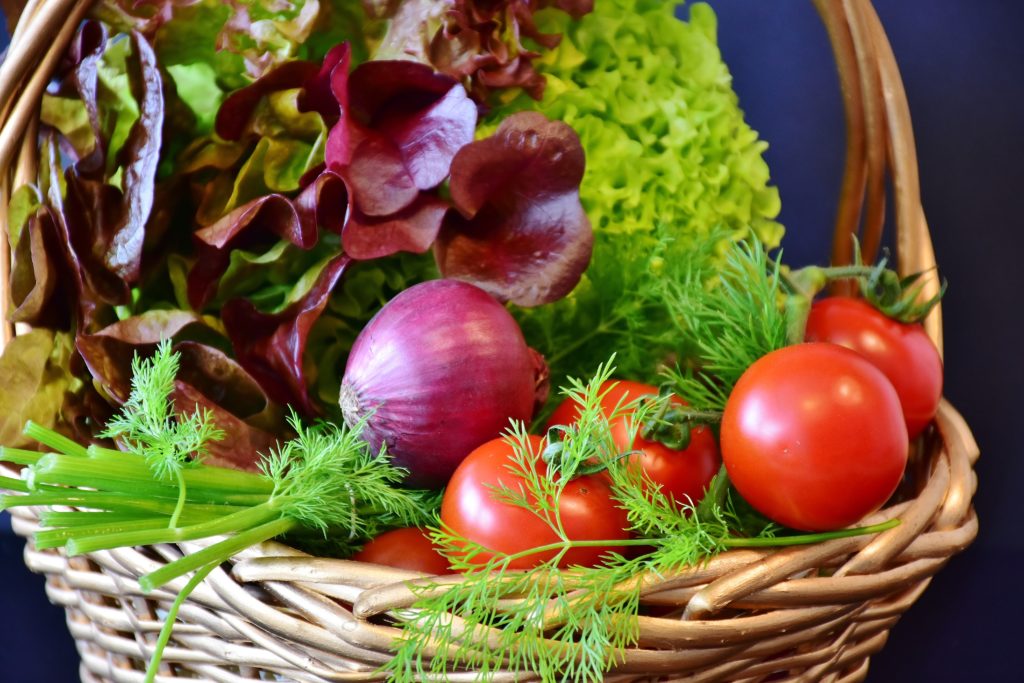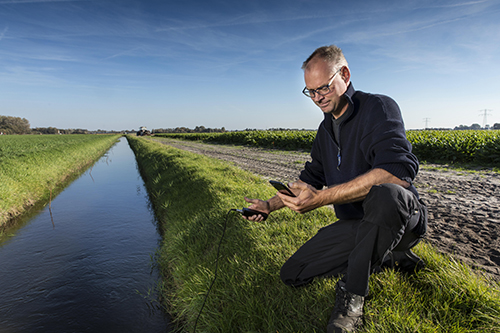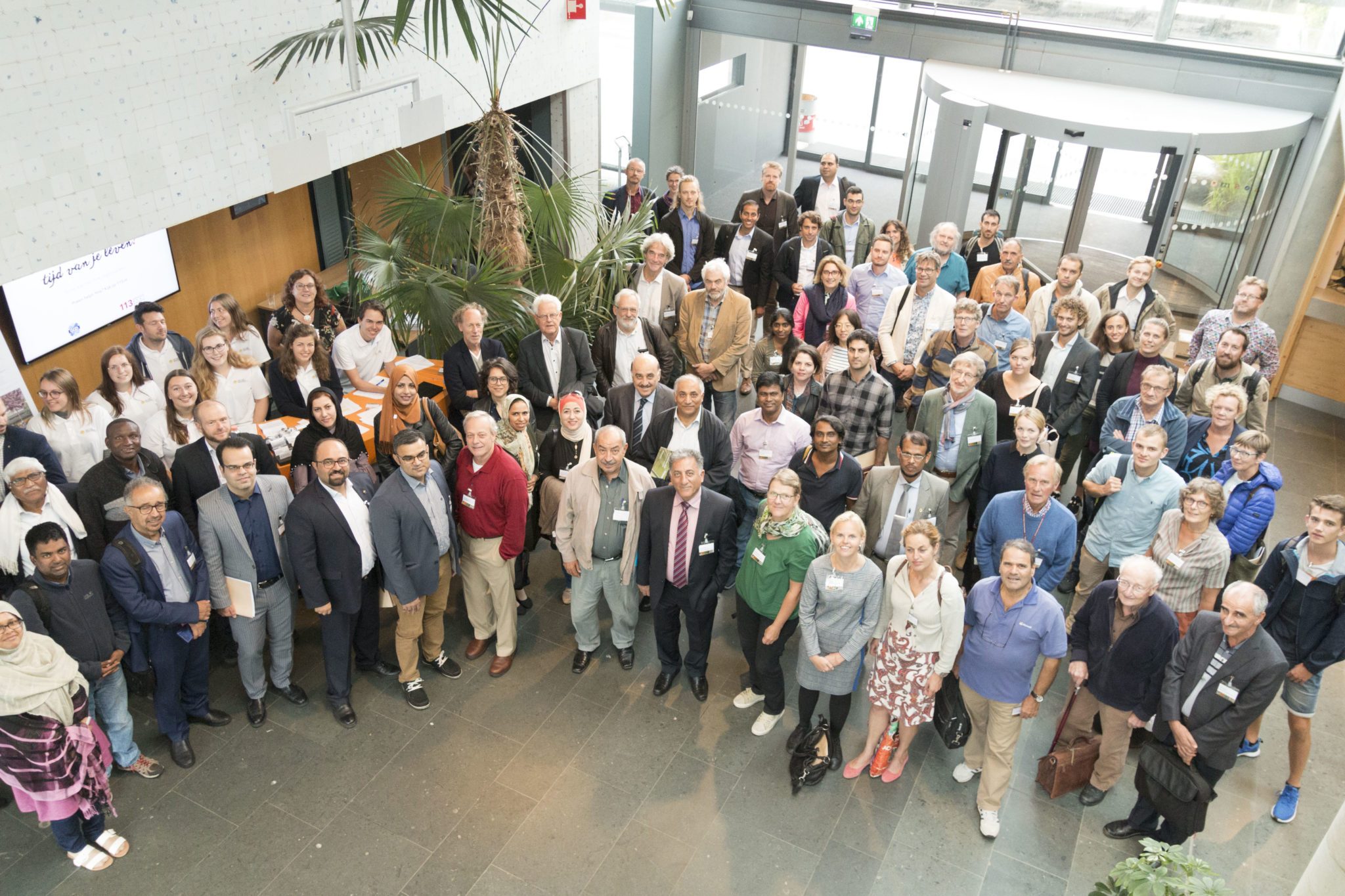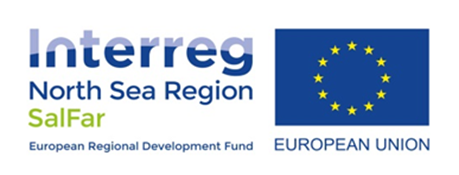Climate adaptive farming and the potential of saline agriculture: The SalFar project

DOI reference: 10.1080/13673882.2020.00001065
By Angelica Kaus, Province of Groningen, The Netherlands
Due to climate change and risk of sea level rise, agriculture in coastal areas is under pressure. Soil salinisation has already led to the degradation of millions of hectares of farmland worldwide, a potential threat to food security.
Farmers in the North Sea Region also experience increasing salinisation on their land. The Interreg North Sea Region Programme funded project SalFar (Saline Farming) sets out to explore the options for farming and food production under increasingly saline conditions. This is essential to preserve natural capital and to strengthen the socio-economic development of the coastal and peripheral areas of the North Sea Region.
Test fields in the North Sea Region
The main scientific aim of SalFar is to test the salt tolerance of crops on a large scale. Sixteen open field labs across the partner regions demonstrate innovative farming on saline soil, based on natural adaptation processes in plants and crops. The work is carried out by a multidisciplinary partnership including climate experts, microbiologists, economists, soil experts, entrepreneurs and policy makers. Scientists work closely together with farmers to find practical solutions.

Test field location Texel, Netherlands, © Salt Farm Foundation
SalFar also works to generate a clear picture of salinisation in the North Sea region and how it will affect agriculture. In addition, the project raises awareness and builds the capacity of food producers through workshops and training on saline farming methods.
The project helps reframe farming by rethinking environmental and agricultural policies and water management in coastal areas and strives to strengthen the rural coastal economy of the North Sea Region by creating new business strategies and opportunities for farmers, food producers and entrepreneurs.
Initiative to measure salinity
Although salinity remains a “taboo” in farmers’ circles, with the drought of the past two summers, sea level rise and salinisation of land are becoming issues that need to be addressed. An important part of the SalFar project are the so-called “farmers’ cafés”, low-threshold meetings for farmers where information is given, and participants are encouraged to talk openly about the threats they are confronted with.
SalFar partner SPNA Agroresearch asked farmers to regularly measure the salinity of their land and provide the data to the scientists. In cooperation with the water boards, the project “Boeren meten water” (farmers measure water) started in the northern part of the Netherlands in autumn 2019. In this way, a salinisation map can be drawn up and farmers in the affected areas may get support for a transition to saline agriculture.

© Boeren Meten Water
Salinisation Framework
“Salinisation is a complex issue in the North Sea Region”, says Jeroen de Waegemaeker from the Institute of Fisheries and Agricultural Research in Brussels. “The geological, hydrological and meteorological conditions vary throughout the region. Not even the salt content of the sea is generic! There is much more salt in coastal waters of Belgium and Holland than in the Øresund, the sea that separates Denmark from Sweden. And local water management and agriculture vary greatly as well. As a result, we are seeing a diverse range of salinisation processes.”

To generate a shared language and understanding of the challenge, the SalFar project has defined a framework on salinisation processes. The framework facilitates quick and easy comparison of salinisation in coastal regions.
See SalFar video for a detailed explanation this.
The framework can be seen as a basic knowledge resource for policymakers, paving the way for innovative agriculture and support to farmers in dealing with climate adaptive strategies.
Read the SalFar report on the Salinisation Framework

Learning about saline agriculture on Texel. © Marc van Rijsselberghe / Salt Farm Foundation
Saline farming offers new business opportunities
Beyond salt tolerance of crops, SalFar also works to create new business opportunities for farmers threatened by salinisation. One part of this effort is focussed on testing varieties of conventional crops like potato, cabbage, carrot, onion, tomato, sugar beet or grains like barley, oat or wheat, which are suitable for moderate salinity.
In addition, SalFar conducts experiments with halophytes (salt-loving plants) like Salicornia, ice plant, sea aster or Cochlearia officinalis, including analysis of their nutrition value and quality of taste. These species are suitable for cultivation at high salt concentrations of up to seawater salinity and promise to open up new business opportunities for farmers and food producers.
Gastronomy experts have created new recipes including plants that are native in the Wadden Sea. Cooperation with restaurants in regional tourist areas looks promising.

Reduced pressure on freshwater resources
Salinisation of fertile farmland is usually associated with crop failure and a drop in yield. The SalFar project includes analysis of the economic impact of salinisation in general and of re-using degraded farmland by introducing salt-tolerant crops. The analysis is conducted by the University of Lincoln.
SalFar pilots have already shown that the use of fresh water can be reduced. The University of Gothenburg performed field trials with different mutagenized wheat lines using brackish water via drip irrigation. The trials showed that it is possible to cut freshwater usage and still get a good yield. Focusing on crops with a higher salt tolerance combined with brackish water irrigation is clearly a step forward towards climate adaptive agriculture.
And despite a prolonged drought, the summer of 2018 saw positive results with potatoes in test fields on the Dutch island of Texel:

Drought 2018 potato field conventional farming, © Salt Farm Foundation

Drought 2018 Irrigation with brackish water, © Salt Farm Foundation
Saline farming relevant to global food security
Capitalising on the vast potential of saline farming requires a major collaborative research effort to inform policy. Also, assessing the most promising methods of saline agriculture in different parts of the world is important. SalFar’s mid-term conference “Climate Change and Food Security” brought together more than 200 researchers, policy makers, farmers and other entrepreneurs from over 30 countries. The event was a jump start for international cooperation on saline farming to secure food production.

Participants at the conference
The event covered a broad range of themes, from revitalising saline lands to promising crops and governance. More information including streamed keynote speeches can be found here.

The SalFar team at the welcome session of the conference
ABOUT SALFAR

SalFar addresses increasing soil salinity and related crop failures, a problem caused by global warming and sea level rise. The project develops saline farming methods and explores the business cases of innovative products made from salt-tolerant crops.
- Total budget: €6.1 million including ERDF funds of €2.7 million and Norwegian funds of €313,000.
- Partnership: 12 partners from Belgium, Denmark, Germany, the Netherlands, Norway, Sweden, United Kingdom.
- Project duration: Five years (2017 – 2022).
To learn more, visit SalFar’s website.